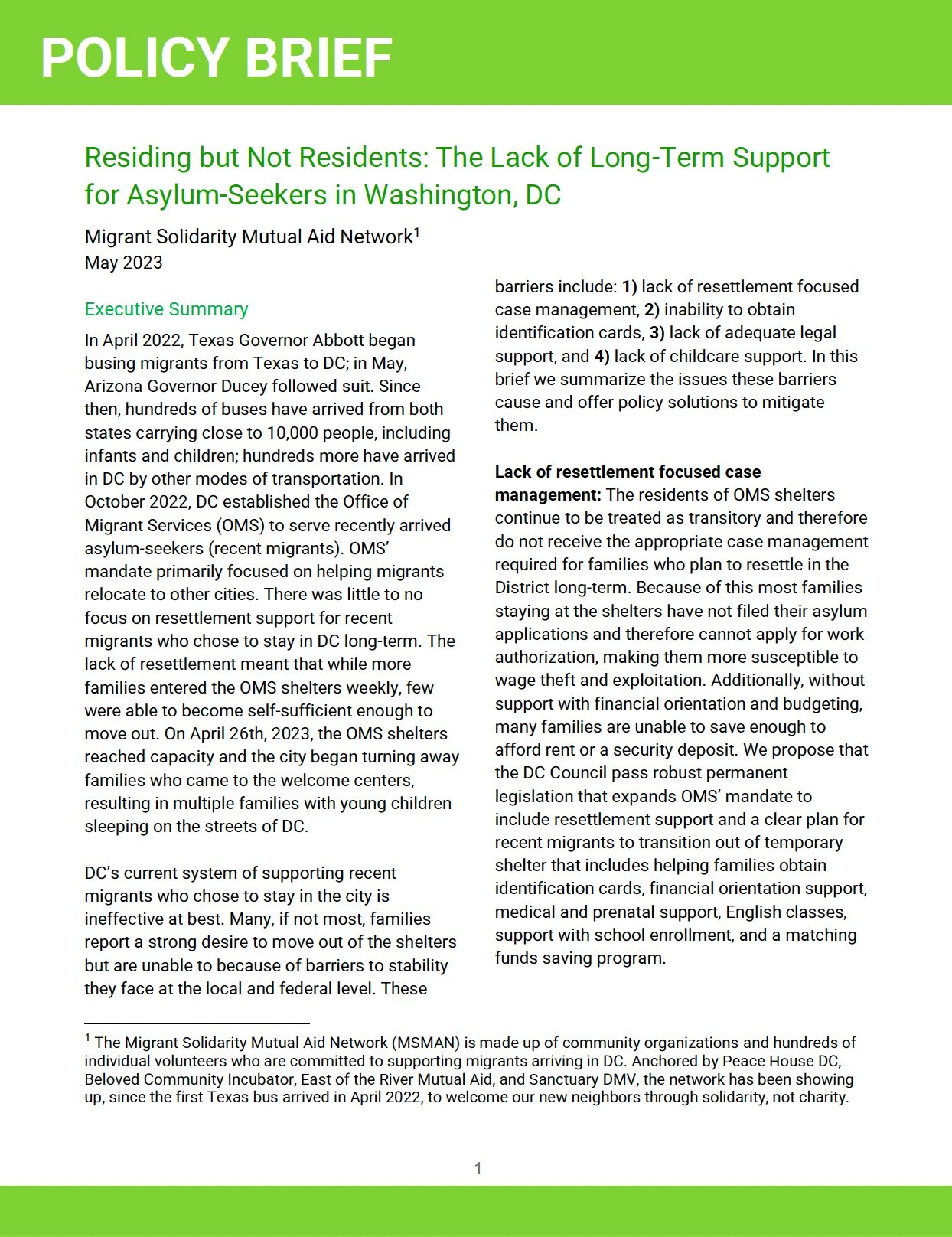Research & Reports

Memo | DC Driver’s License and Identification Card Laws and Regulations: Current Issues and Proposed Changes
Currently, DC ID laws are too restrictive — with strict eligibility requirements for Limited Purpose Credentials leaving hundreds of residents ineligible for any form of ID, and an ever-shrinking list of acceptable proof of residency documents resulting in many housing insecure individuals unable to prove residency. In addition, District residents applying for LPCs must contend with one of the most limited lists of acceptable proof of identity documents out of the 21 states that allow similar IDs; this, coupled with the six-month residency requirement, leave countless immigrants unable to access the ID that was created to benefit them.

Memo | Proposed Changes to DC Limited Purpose Credential Law
Currently, recently arrived asylum-seekers (recent migrants) are unable to obtain DC identification cards. While DC has Limited Purpose Credential ID cards (LPCs) available to residents who do not have or are ineligible for social security numbers, recent migrants are essentially unable to obtain LPCs because of overly restrictive regulations limiting the documents an applicant can present to satisfy proof of identification and proof of DC residency.
LPCs exist to expand access to identification to all DC residents, however, current implementation means that recently arrived migrants and residents with social security numbers who can’t obtain REAL IDs do not have access to identification cards or driver’s licenses. Here, we propose changes in eligibility requirements and the list of documents that can be used to prove identity and residency. By implementing these changes, the DC Council will make LPCs available to some of the most vulnerable people in the District.

Policy Brief | Residing but Not Residents: The Lack of Long-Term Support for Asylum-Seekers in Washington, DC
In April 2022, Texas Governor Abbott began busing migrants from Texas to DC; in May, Arizona Governor Ducey followed suit. Since then, hundreds of buses have arrived from both states carrying close to 10,000 people, including infants and children; hundreds more have arrived in DC by other modes of transportation. In October 2022, DC established the Office of Migrant Services (OMS) to serve recently arrived asylum-seekers (recent migrants). OMS’ mandate primarily focused on helping migrants relocate to other cities. There was little to no focus on resettlement support for recent migrants who chose to stay in DC long-term. The lack of resettlement meant that while more families entered the OMS shelters weekly, few were able to become self-sufficient enough to move out. On April 26th, 2023, the OMS shelters reached capacity and the city began turning away families who came to the welcome centers, resulting in multiple families with young children sleeping on the streets of DC.

Analysis | Migrant Services and Supports Act of 2022 Summary and Issues
The Migrant Services and Supports Act (B24-0992) is meant to support migrants bused to DC from Texas and Arizona, but in reality it is a deeply harmful bill that will have broad impacts on the DC immigrant community. On Sep 20th, the DC Council, at the behest of the Mayor, passed the Migrant Services and Supports Emergency Amendment Act (B24-0990), despite strong condemnation by groups who have been supporting migrants bused here from Day 1. On Oct 4th, they once again ignored advocates and the community, and passed the Temporary Act (B24-0991) that will last 225 days. On Oct 20th, there will be a hearing on the permanent bill.
Here we summarize and breakdown the temporary legislation that is soon to be law, as well as the permanent legislation being heard by the DC Council Committee on Human Services.
